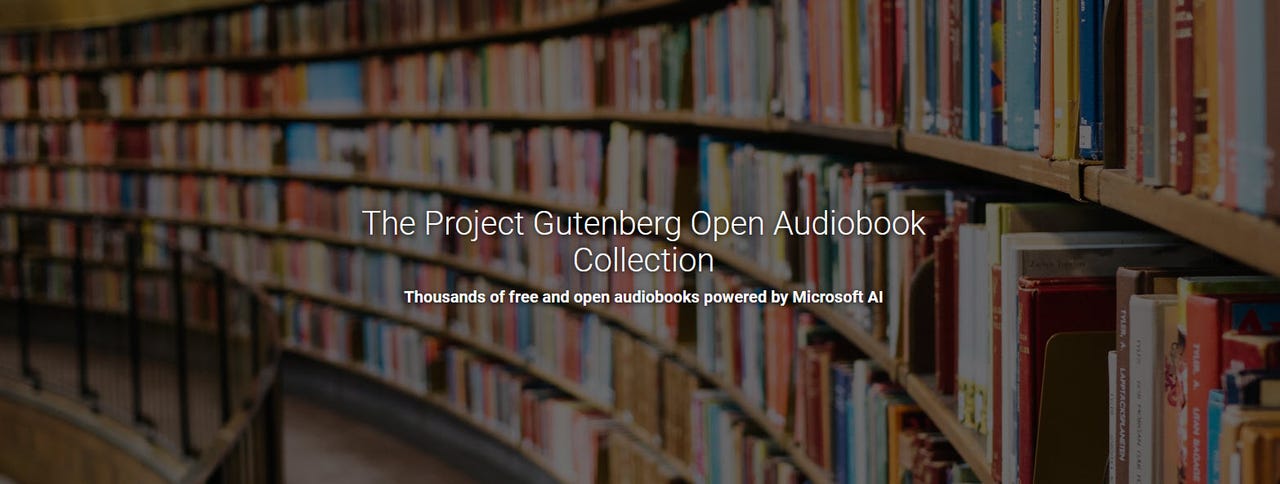How to access thousands of free audiobooks, thanks to Microsoft AI and Project Gutenberg


Audiobooks are a great way to enjoy your favorite books when you're driving, resting, or just don't feel like reading. You'll find plenty of audiobooks online and through other sources. But many of the books read by human beings require a one-time fee or even a subscription. And the free audiobooks are often read in a computerized voice that isn't exactly pleasing to the ear.
To overcome these audiobook obstacles, Project Gutenberg and Microsoft have created thousands of free audiobooks that use neural text-to-speech technology to generate the voices.
Also: The best reading tablets
The neural TTS feature uses AI to generate natural-sounding speech that matches the emotion of human voices. This option lets the developer of the audiobook choose a specific voice and tweak the pronunciation, pitch, rate, pauses, and intonation to create a more pleasing tone for narration.
Another challenge with audiobooks is that they can take hundreds of hours to create, edit, and publish. Working with Microsoft AI, Project Gutenberg was able to cut that time dramatically by automatically producing high-quality audiobooks from existing online e-books.
"In particular, we leverage recent advances in neural text-to-speech to create and release thousands of human-quality, open-license audiobooks from the Project Gutenberg e-book collection," a team of people from Project Gutenberg and Microsoft said in a paper about the project.
Also: How to add reading mode to your Android devices (and why you should)
"Our method can identify the proper subset of e-book content to read for a wide collection of diversely structured books and can operate on hundreds of books in parallel," the team explained. "This work contributed over five thousand open-license audiobooks and an interactive demo that allows users to quickly create their own customized audiobooks."
To listen to any of the audiobooks, browse to the Project Gutenberg Open Audiobook Collection. From here, you can access the books via Spotify, Apple Podcasts, Google Podcasts, or the Internet Archive. The books are all public domain, which means you'll mostly find classic works from authors such as William Shakespeare, Mark Twain, Edith Wharton, Leo Tolstoy, Jules Verne, T. S. Eliot, and Robert Louis Stevenson.
A list of the audiobooks from the Open Audiobook Collection.
Click the book you want to hear. You can then listen to it directly in your browser where you're able to pause, play, skip ahead, go back, and control the volume.
Also: The best Kindle readers
Using Apple Podcasts, Spotify, or one of the other services, you can also download and listen to the book on your mobile device.
The audio player narrates one of the audiobooks.
"This project aims to make literature more accessible to (audio)book-lovers everywhere and democratize access to high-quality audiobooks," Project Gutenberg said. "Whether you are learning to read, looking for inclusive reading technology, or about to head out on a long drive, we hope you enjoy this audiobook collection."